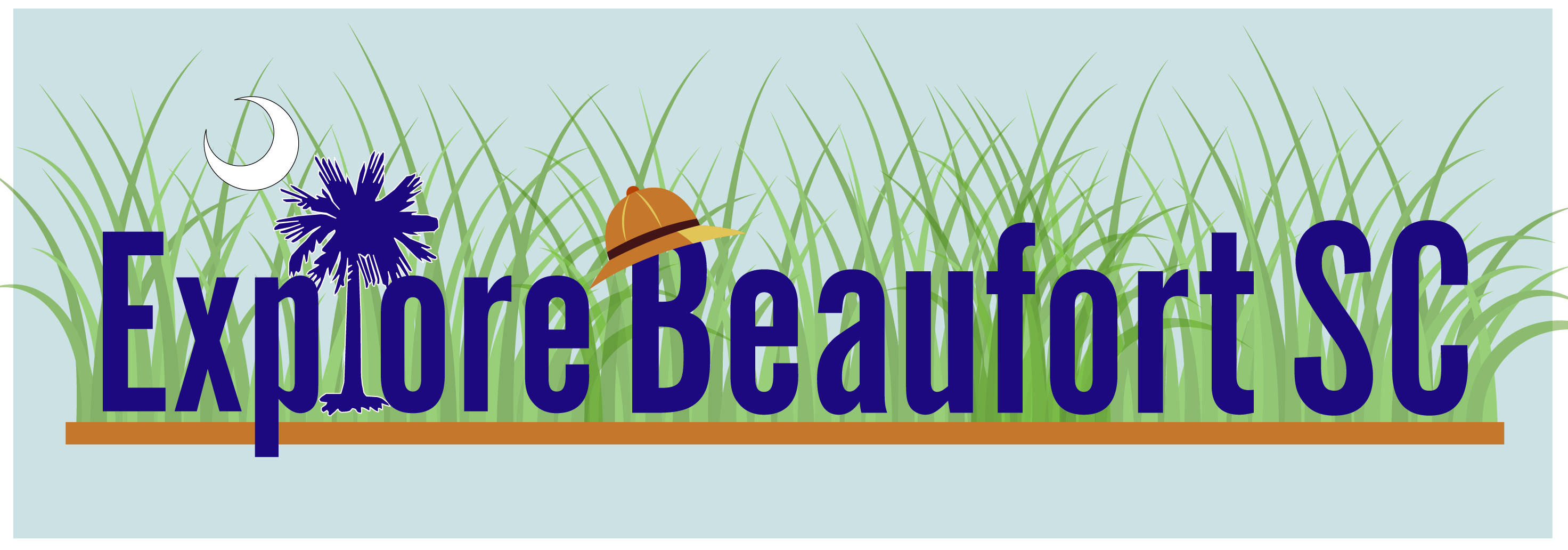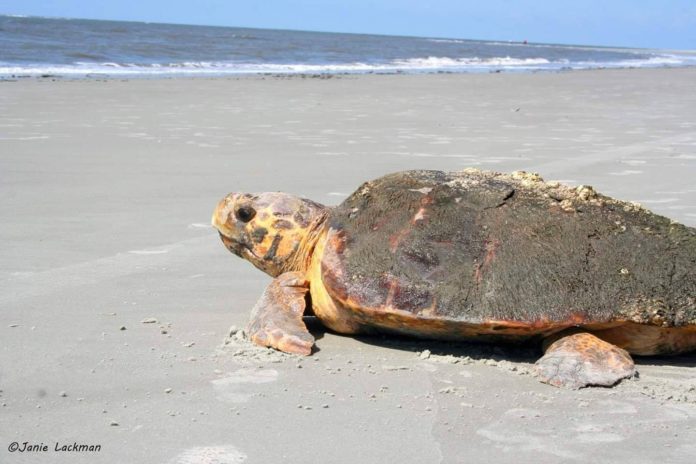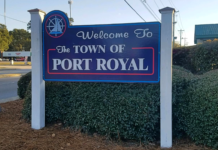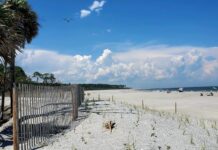We’re 51 days into our sea turtle nesting season all over the beaches on the sea islands of Beaufort and 2019 is turning out to be a banner year.
As of Thursday morning, Hunting Island has seen a total of 68 nests and has surpassed the season total of 60 from last year already.
Harbor Island has had a whopping 58 nests so far while Fripp Island has seen 87. Other local nesting spots are St. Phillips Island with 11 and Pritchards Island with 60 nests.
Even little Coffin Point Beach on St Helena Island is having a huge season with an amazing 20 nests as of today.
Hilton Head’s beaches have seen 256 nests and there have been 48 found on Daufuskie Island. Hilton Head was even blessed to have a visit from a rare Kemp’s ridley turtle.
Last year, these spots, including Lands End beach on St. Helena Island and Little Capers Island accounted for a total of 502 nests, according to the SCDNR.
This season, which is only about halfway through the nesting phase, has seen a total of 560 nests on the same beaches.
That’s a lot of baby turtles.
Well trained volunteers on each of these islands patrol the beaches every day from May through October performing a variety of tasks. They report the nests, the help protect them and they even move them if the momma turtle was having a bad night and picked a bad spot for her nest.
Believe it or not there’s lots that you can do to help, and you don’t even have to get up at 5am to do it like they do.
Whether or you live near areas where sea turtles are found, are just visiting, or appreciate them from afar, there’s plenty you can do to help these wonderful animals.
Let’s look at a few:
Lights out
Sea turtle hatchlings use light and reflections from the moon to find their way to the water at night. Artificial lighting confuses the hatchlings and causes them to head inland instead of out to sea – putting them in dangerous situations which can lead to death. Artificial lights also discourage adult females from nesting on the beach. Short of turning off your lights, you can also take measures to shield, redirect and lower the intensity of the lights on your property.
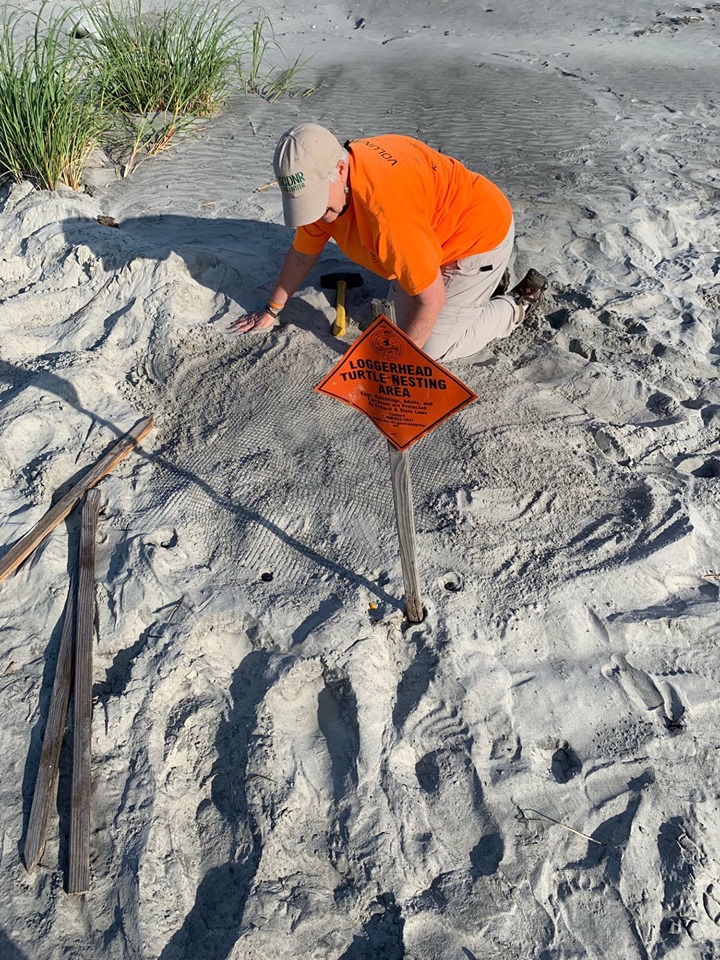
Keep the beach clean
Sea turtles can become tangled in plastic and trash both on the shore and in the water. Discarded items such as fishing lines, balloons and plastic bags may also be confused for food and eaten by sea turtles, often resulting in injury or death.
Leave turtles alone
How many of you want an audience when you’re giving birth? Honestly? Yes, sea turtles are cute, and therefore they’re tempting to touch and observe, but flashlights and people disturb turtles when they are nesting, or trying to nest. Make sure to give nesting areas plenty of space, and do not disturb females as they emerge from the ocean looking for a place to nest. Also be conscious of where nesting areas are so that you can avoid trampling the hatchlings as they head to the water later in the season.
If you encounter a turtle on the beach at night, remain quiet, still, and at a distance, otherwise she may become frightened and return to the ocean without nesting.
Mind your stuff
Remove recreational equipment, such as lounge chairs, cabanas, umbrellas, and boats, from the beach at night. These items can deter nesting attempts and prevent hatchlings from reaching the ocean.
Put the sand back the way it was
Always level sandcastles at the beach after you’re done enjoying your visit. And, please, fill in those holes. A momma sea turtle doesn’t need to fall into a hole or come face to face with the fortress of Helm’s Deep while she’s struggling to find a nesting spot. This is their environment, no pitfalls or fancy castles are necessary. Don’t give the sea turtles in Beaufort a hard time.
Also, leave tracks left by turtles undisturbed. Researchers use the tracks to identify the species of turtle that nested and to find and mark the nests for protection.
Alert boating
When boating, stay alert and avoid sea turtles. Propeller and collision impacts from boats and ships can result in injury and death of sea turtles. Also, stay in channels and avoid running in seagrass beds to protect this important habitat from prop scarring and damage. Avoid anchoring boats in seagrass beds and coral reefs, which serve as important foraging and resting habitats for sea turtles.
Sea turtle nesting season is a special time here in the Lowcountry. Let’s keep it happening for generations to come.


